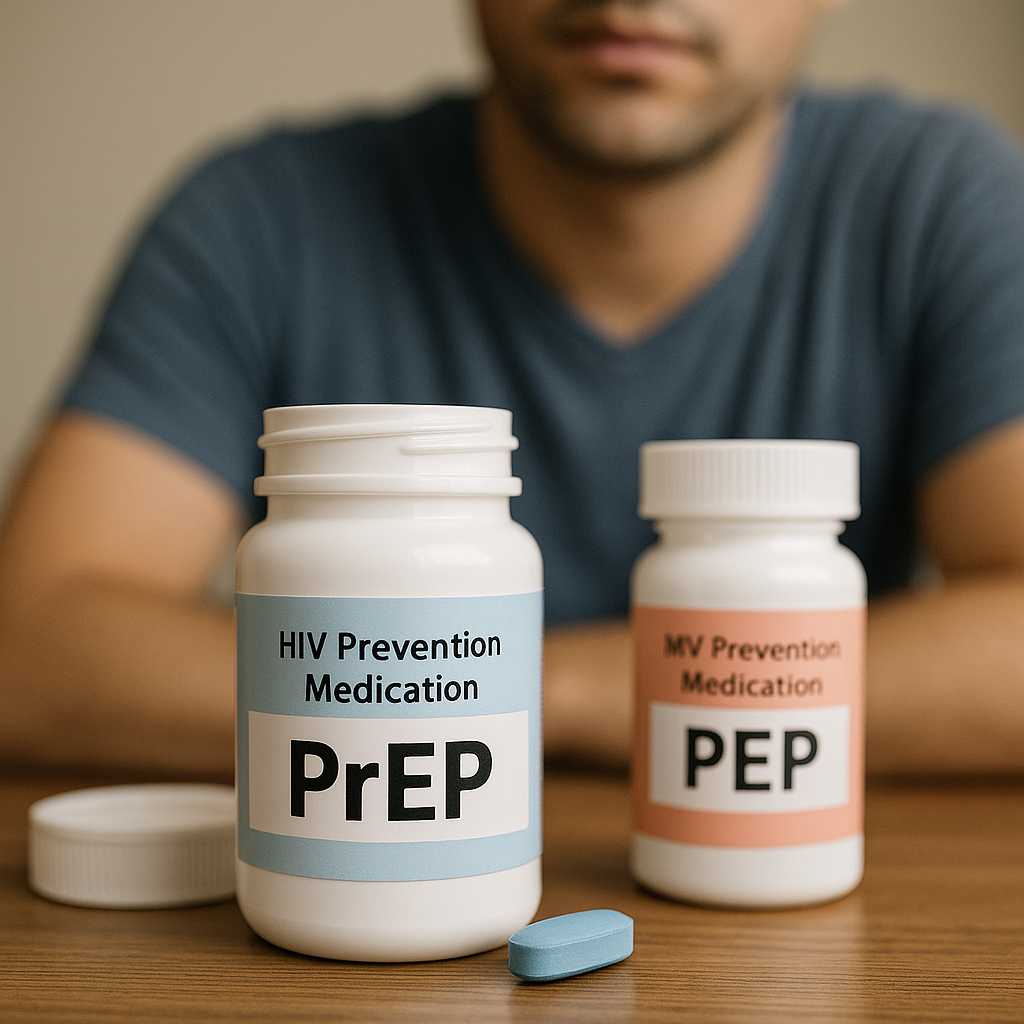Did you know that medications can reduce your risk of HIV by more than 90%? HIV prevention medications, such as PrEP and PEP, are powerful tools in protecting yourself and your loved ones. If you’re looking for clear answers about how these treatments work, who they’re for, and how to access them, you’ve come to the right place.
Table of Contents
- What Are HIV Prevention Medications?
- Understanding PrEP: Pre-Exposure Prophylaxis
- Understanding PEP: Post-Exposure Prophylaxis
- Who Should Consider HIV Prevention Medications?
- How to Access These Medications
What Are HIV Prevention Medications?
HIV prevention medications are antiretroviral drugs that help protect people from acquiring HIV. They work by stopping the virus from multiplying if it enters the body. Today, there are two main options: PrEP (pre-exposure prophylaxis) and PEP (post-exposure prophylaxis). Both are recommended by the CDC and the World Health Organization as part of HIV prevention strategies.
Understanding PrEP: Pre-Exposure Prophylaxis
PrEP is a daily pill or long-acting injection that dramatically reduces the risk of HIV infection in people at higher risk. Approved oral medications include Truvada® and Descovy®, while Apretude® is an injectable form given every two months. Studies show PrEP can lower the risk of getting HIV from sex by about 99% when taken consistently. It is also effective for people who inject drugs, reducing risk by at least 74%.
To start PrEP, you’ll need an HIV test to confirm you’re HIV-negative, along with regular check-ups every 2–3 months to monitor health, HIV status, and kidney function. (CDC)
Understanding PEP: Post-Exposure Prophylaxis
PEP is an emergency option taken after potential exposure to HIV. It must be started within 72 hours of exposure and continued for 28 days. PEP combines multiple antiretroviral drugs to stop the virus from establishing infection. Common situations where PEP is recommended include accidental needlestick injuries, unprotected sex with an HIV-positive partner, or sexual assault. (HIV.gov)
Unlike PrEP, PEP is not for ongoing prevention—it is an urgent, short-term measure.
Who Should Consider HIV Prevention Medications?
HIV prevention medications are for people who may be at risk, including:
- Men who have sex with men without consistent condom use
- People with an HIV-positive partner who is not virally suppressed
- Individuals who inject drugs and share needles
- Anyone who recently had a high-risk exposure
If you’re unsure about your risk, talking with a healthcare provider can help you decide if PrEP or PEP is right for you. You can also find local HIV specialists at Healthcare.pro for tailored advice.
How to Access These Medications
PrEP and PEP are available by prescription from doctors, sexual health clinics, and community health centers. Many insurance plans, Medicaid, and patient assistance programs cover the cost. For those without insurance, organizations such as EHealthCareSolutions provide information on programs that help with medication affordability.
It’s important not to delay. If you think you’ve been exposed to HIV, seek medical care immediately to discuss PEP. For ongoing risk, ask about starting PrEP to maintain long-term protection.
Conclusion
HIV prevention medications are safe, effective, and life-changing tools in the fight against HIV. By learning about PrEP and PEP, understanding your options, and accessing care, you can take powerful steps to protect your health and the health of your community.
FAQs
Is PrEP safe?
Yes. PrEP is well-tolerated, with most side effects being mild and temporary. Your doctor will monitor you during use.
Do I still need to use condoms if I take PrEP?
Yes. PrEP protects against HIV but not other sexually transmitted infections like syphilis or gonorrhea.
What happens if I miss a PrEP dose?
Missing occasionally may not eliminate protection, but consistency is crucial. Always aim to take PrEP daily.
Does PEP always work?
PEP is highly effective if started within 72 hours and taken correctly, but it does not guarantee 100% protection.
Can teenagers use PrEP?
Yes. PrEP is FDA-approved for adolescents weighing at least 35 kg (77 lbs) who are at risk of HIV.
This content is not medical advice. For any health issues, always consult a healthcare professional. In an emergency, call 911 or your local emergency services.




